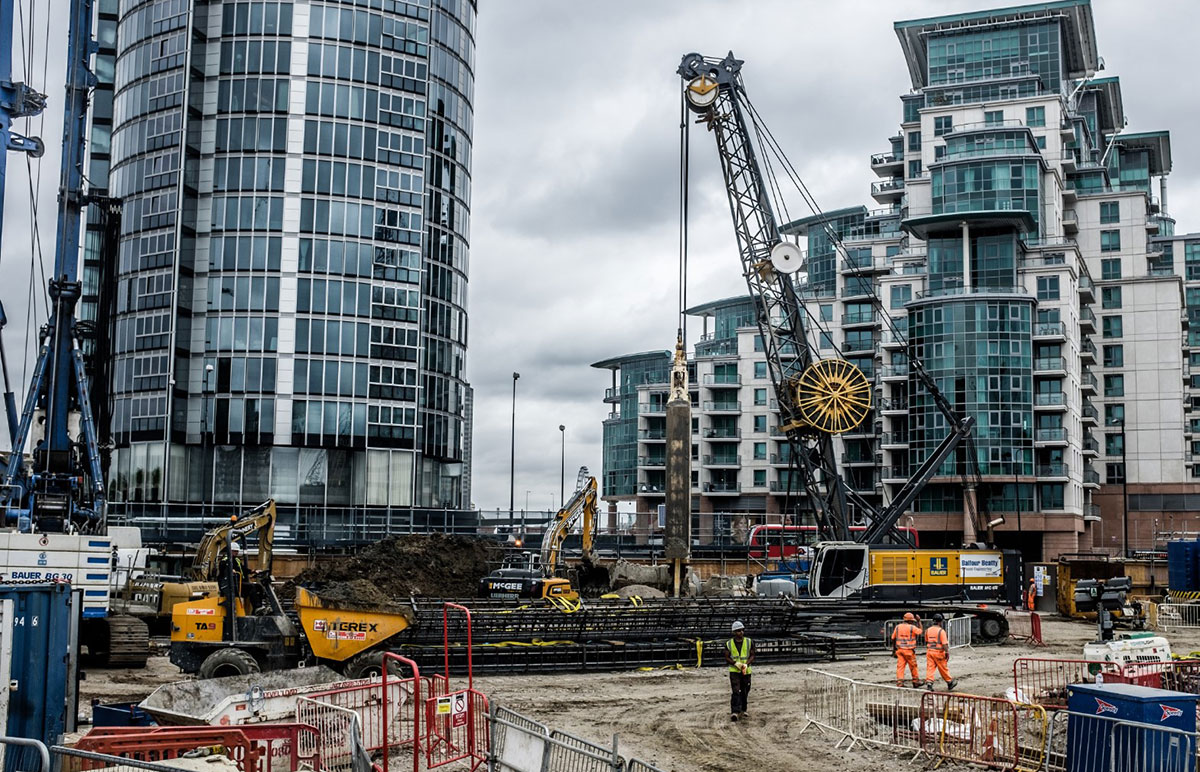The smart Trick of Geotheta That Nobody is Discussing
The smart Trick of Geotheta That Nobody is Discussing
Blog Article
The Ultimate Guide To Geotheta
Table of ContentsThe smart Trick of Geotheta That Nobody is Talking AboutRumored Buzz on GeothetaA Biased View of GeothetaGeotheta Can Be Fun For EveryoneSome Known Details About Geotheta

They perform site investigations, gather examples, do laboratory tests, and examine data to review the suitability of the ground for building and construction jobs - Geo Tech Engineering. Based on their findings, geotechnical engineers offer suggestions for structure layout, slope stability, retaining structures, and reduction of geotechnical dangers. They team up with various other experts, such as designers, architectural designers, and building and construction groups, to make certain that geotechnical factors to consider are incorporated right into the general task layout and application
By examining the behavior and homes of dirt and rock, they can identify prospective geotechnical risks such as landslides, dirt settlement, or incline instability. Their proficiency helps protect against failures or accidents that can jeopardize lives and building. Right here are some detailed duties and duties of a geotechnical designer: Site Investigation: Geotechnical engineers conduct site examinations to collect data on subsurface problems.
They analyze the data to understand the buildings and actions of the dirt and rock, including their toughness, permeability, compaction features, and groundwater conditions. Geotechnical Evaluation and Design: Geotechnical designers analyze the information accumulated during website examinations to analyze the security and suitability of the site for building and construction projects. They perform geotechnical calculations and modeling to evaluate variables such as birthing capability, settlement, incline stability, lateral earth pressures, and groundwater flow.
The 15-Second Trick For Geotheta
Structure Design: Geotechnical designers play a critical function in designing structures that can securely sustain the intended framework. They assess the dirt conditions and lots demands to identify the suitable structure kind, such as shallow structures (e.g., grounds), deep foundations (e.g (https://www.mixcloud.com/geotheta/)., heaps), or specialized strategies like soil improvement. They think about factors such as negotiation limitations, bearing ability, and soil-structure interaction to develop optimal foundation layouts
They examine building strategies, display site tasks, and perform field inspections to validate that the style referrals are adhered to. If unexpected geotechnical concerns occur, they assess the circumstance and provide referrals for remediation or modifications to the style. Risk Analysis and Reduction: Geotechnical designers evaluate geotechnical threats and dangers connected with the job website, such as landslides, liquefaction, or soil disintegration.

Collaboration and Interaction: Geotechnical designers work very closely with other specialists associated with a task, such as architects, structural designers, and construction teams. Reliable communication and cooperation are important to incorporate geotechnical considerations right into the overall task design and building process. Geotechnical engineers provide technical competence, solution queries, and guarantee that geotechnical demands are satisfied.
The Buzz on Geotheta
Below are some kinds of geotechnical designers: Structure Engineer: Structure designers focus on making and examining structures for frameworks. They assess the soil conditions, load requirements, and site qualities to identify the most proper structure type and design, such as superficial structures, deep foundations, or specialized strategies like heap structures.
They examine the aspects influencing slope stability, such as soil residential or commercial properties, groundwater conditions, and slope geometry, and develop methods to stop slope failures and reduce dangers. Earthquake Engineer: Earthquake engineers concentrate on assessing and developing structures to hold up against seismic pressures. They examine the seismic threat of a website, assess soil liquefaction possibility, and establish seismic design criteria to make certain the safety and strength of structures throughout earthquakes.
They perform area screening, collect samples, and assess the gathered data to identify the soil residential properties, geologic formations, and groundwater problems at a site. Geotechnical Instrumentation Engineer: Geotechnical instrumentation designers concentrate on tracking and measuring the actions of soil, rock, and frameworks. They set up and maintain instrumentation systems that keep an eye on elements such as dirt settlement, groundwater degrees, incline activities, and architectural displacements to evaluate efficiency and provide very early warnings of possible issues.
The Definitive Guide to Geotheta
They conduct tests such as triaxial tests, loan consolidation examinations, direct shear tests, and permeability tests to collect data for geotechnical analysis and design. Geosynthetics Engineer: Geosynthetics engineers concentrate on the style and application of geosynthetic materials, such as geotextiles, geogrids, and geomembranes. They use these materials to improve dirt security, enhance inclines, offer drainage remedies, and control disintegration.
They tend to be investigatory people, which means they're intellectual, introspective, and analytical. They are curious, systematic, sensible, logical, and logical. Several of them are likewise social, suggesting they're kind, generous, participating, individual, caring, valuable, compassionate, sensible, and friendly. Does this sound like you? Take our totally free profession examination to learn if geotechnical designer is just one of your top career matches.
In the workplace setting, geotechnical designers utilize specialized software program tools to perform computations, produce layouts, and analyze information. They prepare reports, evaluation job requirements, interact advice with customers and employee, and coordinate job tasks. The office setup offers a favorable atmosphere for research, evaluation, and partnership with other experts included in the task.
Our Geotheta Ideas
They often see job websites to perform site examinations, assess geotechnical problems, and collect data for analysis. These visits include taking a trip to different areas, often in remote or difficult terrains. Geotechnical designers may do dirt sampling, conduct tests, and screen building and construction activities to guarantee that the geotechnical elements of the project are being executed appropriately.
Geotechnical engineers additionally function in specialized geotechnical laboratories. Geotechnical lab engineers work extensively in these environments, handling testing equipment, running tools, and taping data.
Report this page